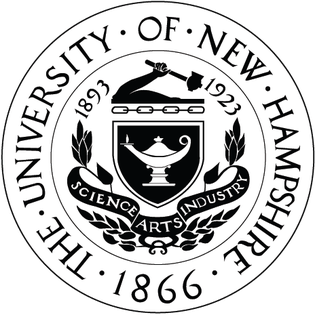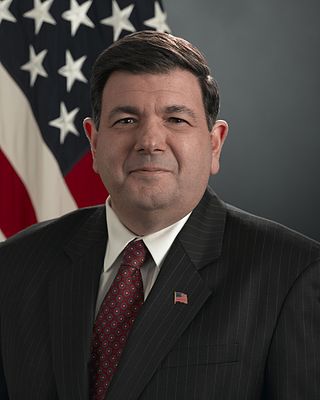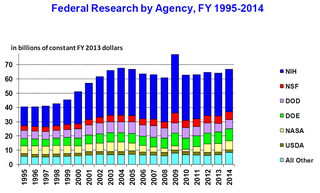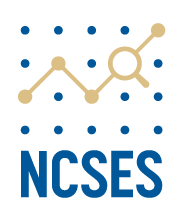
The National Science Foundation (NSF) is an independent agency of the United States federal government that supports fundamental research and education in all the non-medical fields of science and engineering. Its medical counterpart is the National Institutes of Health. With an annual budget of about $8.3 billion,the NSF funds approximately 25% of all federally supported basic research conducted by the United States' colleges and universities. In some fields,such as mathematics,computer science,economics,and the social sciences,the NSF is the major source of federal backing.

The Heinz College of Information Systems and Public Policy,also known as Heinz College,is the public policy and information college of Carnegie Mellon University in Pittsburgh,Pennsylvania. It consists of the School of Information Systems and Management and the School of Public Policy and Management. The college is named after CMU's former instructor and the later U.S. Senator John Heinz from Pennsylvania.

Old Dominion University (ODU) is a public research university in Norfolk,Virginia. It was established in 1930 as the Norfolk Division of the College of William &Mary and is now one of the largest universities in Virginia with an enrollment of 24,286 students for the 2021 academic year. Old Dominion University also enrolls over 700 international students from 89 countries. Its main campus covers 251 acres (1.02 km2) straddling the city neighborhoods of Larchmont,Highland Park,and Lambert's Point,approximately five miles (8.0 km) from Downtown Norfolk.

The University of New Hampshire (UNH) is a public land-grant research university with its main campus in Durham,New Hampshire. It was founded and incorporated in 1866 as a land grant college in Hanover and moved to Durham in 1893,and adopted its current name in 1923.

The National Science Board (NSB) of the United States establishes the policies of the National Science Foundation (NSF) within the framework of applicable national policies set forth by the president and the Congress. The NSB also serves as an independent policy advisory body to the president and Congress on science and engineering research and education issues. The board has a statutory obligation to "...render to the President and to the Congress reports on specific,individual policy matters related to science and engineering and education in science engineering,as Congress or the President determines the need for such reports,". All board members are presidential appointees. NSF's director serves as an ex officio 25th member and is appointed by the president and confirmed by the US Senate.

Philip E. Rubin is an American cognitive scientist,technologist,and science administrator known for raising the visibility of behavioral and cognitive science,neuroscience,and ethical issues related to science,technology,and medicine,at a national level. His research career is noted for his theoretical contributions and pioneering technological developments,starting in the 1970s,related to speech synthesis and speech production,including articulatory synthesis and sinewave synthesis,and their use in studying complex temporal events,particularly understanding the biological bases of speech and language.
The College of Science and Engineering (CSE) is one of the colleges of the University of Minnesota in Minneapolis,Minnesota. On July 1,2010,the college was officially renamed from the Institute of Technology (IT). It was created in 1935 by bringing together the university's programs in engineering,mining,architecture,and chemistry. Today,CSE contains 12 departments and 24 research centers that focus on engineering,the physical sciences,and mathematics.

The Robert and Renée Belfer Center for Science and International Affairs,also known as the Belfer Center,is a research center located within the Harvard Kennedy School at Harvard University,in the United States. From 2017 until his death in October 2022,the center was led by Director Ash Carter,former U.S. Secretary of Defense and Co-Director Eric Rosenbach,former U.S. Assistant Secretary of Defense. Its current executive director is Natalie Colbert.
The America Creating Opportunities to Meaningfully Promote Excellence in Technology,Education,and Science Act of 2007,also known as the America COMPETES Act, was authored by Bart Gordon and signed into law on August 9,2007,by President George W. Bush. The act aimed to invest in innovation through research and development and improve the competitiveness of the United States.

Subra Suresh is an Indian-born American bioengineer,materials scientist,and academic. On 1 January 2018,he was inaugurated as the fourth President of Singapore's Nanyang Technological University (NTU),where he is also the inaugural Distinguished University Professor. Subra Suresh plans on stepping down from his role as the President of NTU at the end of 2022. He was the Vannevar Bush Professor of Engineering at the Massachusetts Institute of Technology (MIT),and Dean of the School of Engineering at MIT from 2007 to 2010 before being appointed as Director of the National Science Foundation (NSF) by Barack Obama,where he served from 2010 to 2013. He was the president of Carnegie Mellon University (CMU) from 2013 to 2017.

Zachary John Lemnios is an American scientist,executive,and engineer who has worked in government,industry,and academia. Most notably,he held the post of Assistant Secretary of Defense for Research and Engineering from 2009 to 2012,and he has served as the first Chief Technology Officer of MIT Lincoln Laboratory,and as Vice President of Research at IBM. Lemnios later founded ZJL Consulting,LLC.

The science policy of the United States is the responsibility of many organizations throughout the federal government. Much of the large-scale policy is made through the legislative budget process of enacting the yearly federal budget,although there are other legislative issues that directly involve science,such as energy policy,climate change,and stem cell research. Further decisions are made by the various federal agencies which spend the funds allocated by Congress,either on in-house research or by granting funds to outside organizations and researchers.

Dr. Erick Christopher Jones Sr. is dean of the College of Engineering at the University of Nevada,Reno,joining the college in September 2022.

Ilkay Altintas is a Turkish-American data and computer scientist,and researcher in the domain of supercomputing and high-performance computing applications. Since 2015,Altintas has served as chief data science officer of the San Diego Supercomputer Center (SDSC),at the University of California,San Diego (UCSD),where she has also served as founder and director of the Workflows for Data Science Center of Excellence (WorDS) since 2014,as well as founder and director of the WIFIRE lab. Altintas is also the co-initiator of the Kepler scientific workflow system,an open-source platform that endows research scientists with the ability to readily collaborate,share,and design scientific workflows.
Tawanna Dillahunt is an American computer scientist and information scientist based at the University of Michigan School of Information. She runs the Social Innovations Group,a research group that designs,builds,and enhances technologies to solve real-world problems. Her research has been cited over 2,700 times according to Google Scholar.

Michel Bierlaire is a Belgian-Swiss applied mathematician specialized in transportation modeling and optimization. He is a professor at EPFL and the head of the Transport and Mobility Laboratory.
Sarita Yardi Schoenebeck is an American computer scientist at the University of Michigan,where she serves as Director of the Living Online Lab. Her research considers human–computer interactions,social media and social computing. She was awarded the University of Michigan School of Information Diversity,Equity and Inclusion Award in 2017 for her work on LGBTQ+ families and online communities.
Cassidy R. Sugimoto is an American information scientist who is the Professor and Tom and Marie Patton School Chair in the School of Public Policy at the Georgia Institute of Technology. She studies the ways knowledge is processed and disseminated. She is the author of the 2016 MIT Press book Big Data is Not a Monolith.

The National Center for Science and Engineering Statistics (NCSES) is one of the thirteen principal statistical agencies of the United States and is tasked with providing objective data on the status of the science and engineering enterprise in the U.S. and other countries. NCSES sponsors or co-sponsors data collection on 15 surveys and produces two key publications:Science and Engineering Indicators,and Women,Minorities,and Persons with Disabilities in Science and Engineering. Though policy-neutral,the data and reports produced by NCSES are used by policymakers when making policy decisions regarding STEM education and research funding in the U.S.
Shobita Parthasarathy is an American academic,author,and contributor to the field of Science and Technology Studies based at the Gerald R. Ford School of Public Policy at the University of Michigan. She is the director of the Science,Technology,and Public Policy Program,a research,education,and policy engagement center concerned with questions at the intersection of science,technology,policy,and society. She has received numerous prominent awards and grants for her work and has provided expert advice on technology,equity,and policy to civil society groups,international organizations,and governments around the world,including testimony to the U.S. Congress.















